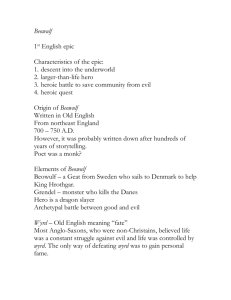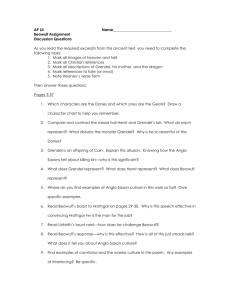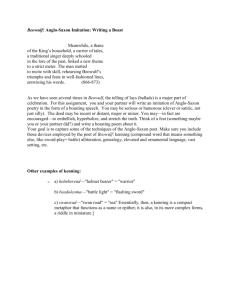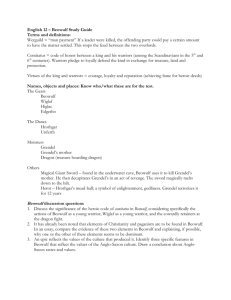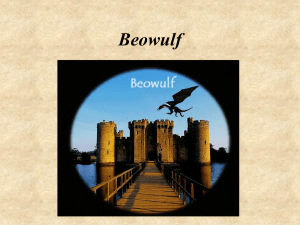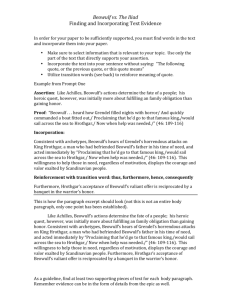Beowulf Bingo Call Sheet
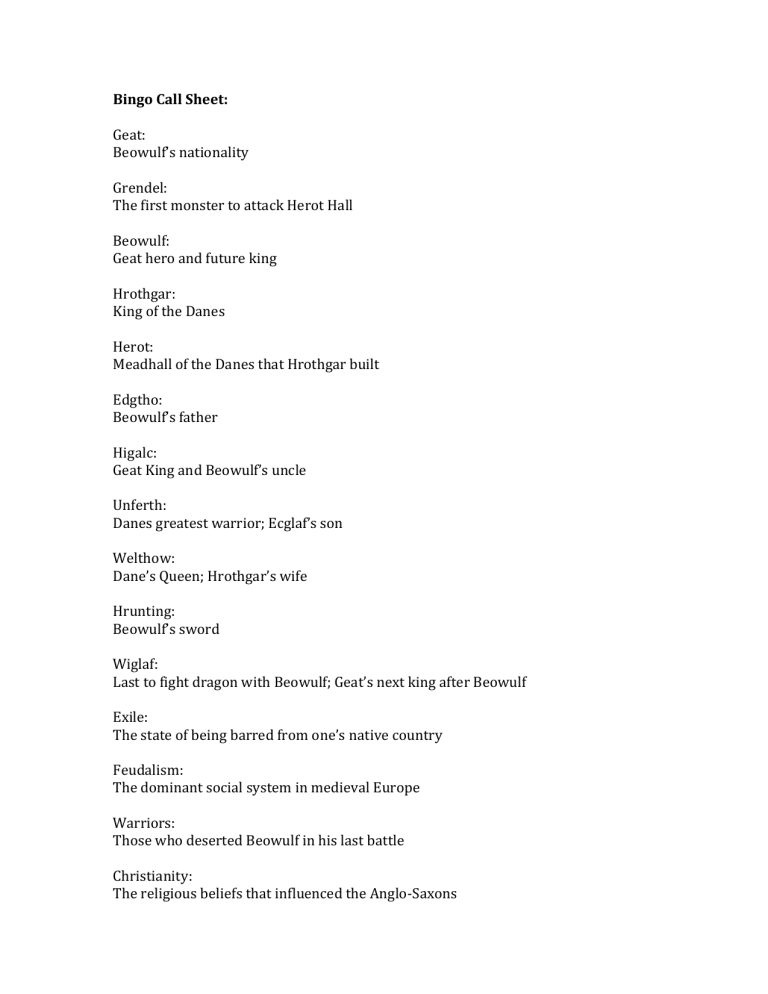
Bingo Call Sheet:
Geat:
Beowulf’s nationality
Grendel:
The first monster to attack Herot Hall
Beowulf:
Geat hero and future king
Hrothgar:
King of the Danes
Herot:
Meadhall of the Danes that Hrothgar built
Edgtho:
Beowulf’s father
Higalc:
Geat King and Beowulf’s uncle
Unferth:
Danes greatest warrior; Ecglaf’s son
Welthow:
Dane’s Queen; Hrothgar’s wife
Hrunting:
Beowulf’s sword
Wiglaf:
Last to fight dragon with Beowulf; Geat’s next king after Beowulf
Exile:
The state of being barred from one’s native country
Feudalism:
The dominant social system in medieval Europe
Warriors:
Those who deserted Beowulf in his last battle
Christianity:
The religious beliefs that influenced the Anglo-Saxons
Paganism:
The original religion of the Anglo-Saxons
Danes:
Hrothgar is king of these people
Cain:
Grendel was claimed to be a desendant of him
Esher:
Hrothgar’s counselor and close friend whom which Grendel’s mother kills
Lake:
Grendel and his mother’s home
The dragon:
An ancient, powerful serpent; he guards a horde of treasure in a hidden mound
Treasure:
What Beowulf wanted surrounding him as he died; what the Anglo-Saxon’s used to honor their kings and warriors
Iron Shield:
What Beowulf had made especially for the last battle
Jeweled Cup:
The item that caused the dragon to wake and ultimately Beowulf to die
Loyalty:
One of the most important virtues of the Anglo-Saxon’s (others are wisdom, bravery/courage, and physical strength)
Metaphor:
A figure of speech that makes a comparison between two seemingly unlike things
Ceasura:
A pause or break withing a line of poetry
Gielp:
The Anglo-Saxon term that means to boast or brag
Scop:
An anglo-saxon poet
Wyrd:
Anglo-Saxon term for “fate”
Alliteration:
The repetition of consonant sounds in words that are close to one another
Allusion:
An indirect or passing reference to some event, person, place, or artistic work
Epic:
A long narrative poem that relates the great deeds of a larger-than-life hero who embodies the values of a particular society
Epic Hero:
The central figure in a long narrative who possesses larger than life qualities such as bravery, loyalty, and heroism
Kenning:
A metaphorical phrase or compound word used to name a person, place, thing, or event indirectly
Hyperbole:
A great exaggeration
Personification:
The act of attributing human characteristics to abstract ideas



